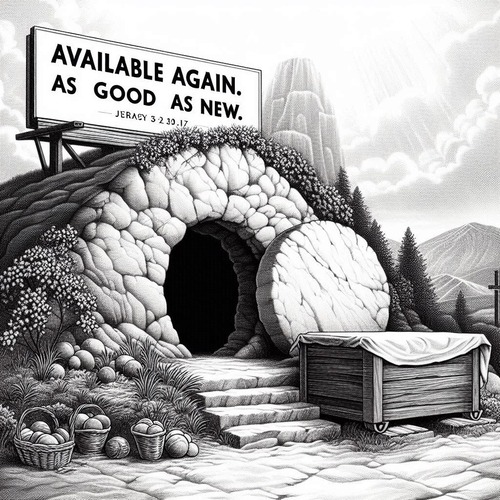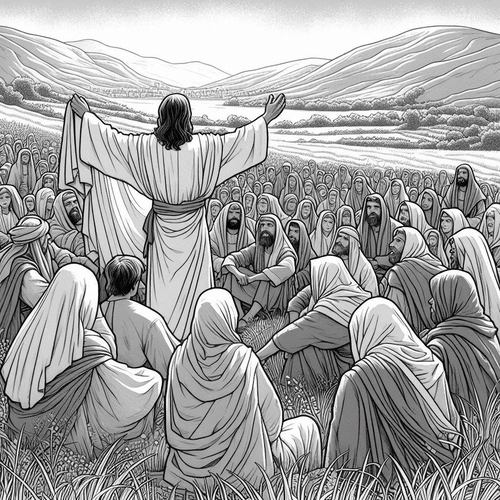Why Do Christians Celebrate the Lord’s Supper?
SIX REASONS FROM 1 CORINTHIANS 11:17-30
The Lord’s Supper is one of Christianity’s most sacred ordinances, yet confusion often surrounds its purpose and practice. In 1 Corinthians 11:17-30, the Apostle Paul addresses the Corinthian church’s misuse of the holy sacrament while revealing six profound reasons why Christians throughout history have faithfully observed this fellowship meal. Understanding the biblical foundations helps us approach the Lord’s Table with due reverence and appreciation of its rich significance.
PAUL’S SIX REASONS FOR CELEBRATING THE LORD’S SUPPER
Unity (1 Corinthians 11:17-22) “But in the following instructions I do not commend you, because when you come together it is not for the better but for the worse… When you come together, it is not the Lord’s supper that you eat.”
The Lord’s Supper is designed to unite believers as one body in Christ. Paul rebukes the Corinthians because their divisions and class distinctions were destroying the very unity the meal was meant to express. When we partake together, we declare our shared identity in Christ, transcending social, economic, and cultural barriers. The common cup and broken bread symbolise our participation in the one body of Christ, making us equal recipients of His grace.
Remembrance (1 Corinthians 11:24-25) “And when he had given thanks, he broke it, and said, ‘This is my body, which is for you. Do this in remembrance of me.’ In the same way also he took the cup, after supper, saying, ‘This cup is the new covenant in my blood. Do this, as often as you drink it, in remembrance of me.’”
Christ explicitly commanded believers to “do this in remembrance of me.” The Lord’s Supper serves as a tangible memorial of Christ’s sacrificial death. Just as the Passover meal reminded Israel of God’s deliverance from Egypt, communion reminds us of our deliverance from sin through Christ’s broken body and shed blood. This remembrance is not merely intellectual but experiential, engaging our senses and emotions in recalling the greatest act of love in history.
Proclamation (1 Corinthians 11:26) “For as often as you eat this bread and drink the cup, you proclaim the Lord’s death until he comes.”
Every celebration of the Lord’s Supper is a proclamation—a public declaration of the gospel. The elements themselves preach Christ’s substitutionary atonement to both participants and observers. This proclamation extends beyond words to visible symbols that communicate the central message of Christianity: that Christ died for sinners. The meal becomes a recurring testimony to the world of God’s redemptive work. This proclamation isn’t for the benefit of the unsaved in fellowship alone. Believers need frequent reminding too.
Anticipation (1 Corinthians 11:26) “…until he comes.”**
The phrase “until he comes” infuses the Lord’s Supper with eschatological hope. Each communion service points forward to Christ’s return and the great wedding feast of the Lamb. We celebrate not only what Christ has done but also what He will do when He establishes His eternal kingdom. This forward-looking dimension transforms communion from a sombre memorial into a joyful anticipation of our ultimate reunion with Christ.
Self-Examination (1 Corinthians 11:28) “Let a person examine himself, then, and so eat of the bread and drink of the cup.”
The Lord’s Supper requires spiritual introspection before participation. This self-examination involves confessing sin, affirming faith in Christ, and ensuring proper motives for partaking. The Reformed tradition emphasises this preparation as essential for worthy participation. Self-examination prevents the casual or presumptuous approach that characterised what the Corinthians were doing, and prepares our hearts to receive spiritual nourishment.
Warning (1 Corinthians 11:29-30) “For anyone who eats and drinks without discerning the body eats and drinks judgement on himself. That is why many of you are weak and ill, and some have died.”
Paul’s sobering warning demonstrates the seriousness of the Lord’s Supper. Participating unworthily—without proper discernment of Christ’s body and the sacrament’s significance—brings divine judgement. We read the Corinthians did experience physical consequences for their irreverent approach to the Lord’s table. This warning underscores communion isn’t a casual religious ritual but a sacred encounter with the living God. The meeting demands reverence and spiritual preparation.
WHO CAN PARTAKE?
The following are the biblical qualifications:
- Believers who’ve professed faith in Jesus Christ (1 Corinthians 11:28)
- Those who can examine themselves spiritually (age of discretion)
- Members in good standing with the church (maintaining church discipline standards)
- Those not under church discipline or living in unrepentant sin
The Reformed Perspective:
The Reformed tradition typically practices “fencing the table” by clearly articulating these qualifications before communion, following Paul’s instruction for self-examination. Some Reformed churches practice closed communion (restricting it to members only), while others practice close communion (extending it to professing Christians in good standing).
HOW OFTEN DO WE CELEBRATE?
Scripture doesn’t prescribe the exact frequency, using the phrase “as often as” (1 Corinthians 11:26). Historical Reformed practice varies:
- Weekly: Following the early church pattern and Calvin’s preference
- Monthly: Common in many Reformed congregations
- Quarterly: Traditional Presbyterian practice
The emphasis is on regular, reverent observance rather than rigid scheduling.
WHO MUST NOT PARTAKE? AND WHAT IF THEY DO?
The Bible prohibits the following from participation at the Lord’s table:
- Unbelievers who haven’t trusted Christ for salvation
- Those living in unrepentant sin (1 Corinthians 5:11)
- Anyone unable to examine themselves (very young children, those with severe cognitive impairment)
- Those harbouring unforgiveness or maintaining divisions within the church body
Consequences of Unworthy Participation The immediate spiritual consequences:
- Eating and drinking judgment upon oneself (1 Corinthians 11:29)
- Spiritual weakness and spiritual illness
- Potential physical manifestations of divine discipline
The Corinthian Example: Paul directly links the Corinthians’ physical weakness, illness, and even death to their unworthy participation in communion (1 Corinthians 11:30). While we shouldn’t expect identical physical judgements today, the principle remains: irreverent participation in the Lord’s Supper brings divine displeasure and discipline.
Pastoral Application: Churches must balance biblical warnings with gospel grace, emphasising both the seriousness of communion and the availability of forgiveness through repentance. The goal is not to create fear but to cultivate proper reverence and spiritual preparation.
CONCLUSION: THE LORD’S SUPPER
The Lord’s Supper encompasses the full spectrum of Christian experience—past redemption, present unity, and future hope. When observed with proper understanding and reverence, it strengthens faith, builds community, and glorifies Christ. Paul’s instructions to the Corinthians remain relevant today, calling modern believers to approach the Lord’s Table with the same careful preparation and spiritual discernment that characterised the early church at its best.
Let us therefore examine ourselves, remember Christ’s sacrifice, proclaim His death, anticipate His return, maintain church unity, and heed the biblical warnings—all while celebrating the profound grace that makes us worthy through Christ’s righteousness alone.
THE LORD’S SUPPER: RELATED FAQs
What do Reformed scholars say about the real presence of Christ in communion? Modern Reformed theologians like Michael Horton and Sinclair Ferguson maintain Calvin’s view of the “spiritual real presence”—Christ is truly present through the Holy Spirit, though not physically in the elements. This differs from Lutheran consubstantiation and Catholic transubstantiation while affirming more than mere symbolism. The Westminster Confession states worthy receivers “spiritually receive and feed upon Christ crucified, and all benefits of his death.”
- Should Reformed churches practice open, close, or closed communion? Contemporary Reformed practice varies significantly on this issue. Scholars like RC Sproul advocated for close communion (open to all believers in good standing), while others like John MacArthur practice closed communion (members only). The PCA and OPC generally practice close communion, inviting all believers, while some conservative Presbyterian churches maintain closed communion to preserve church discipline and doctrinal purity.
- What consequences of unworthy participation have Reformed churches actually reported in modern times? While dramatic physical judgements like those Paul reports in Corinth are rare, Reformed pastors report spiritual consequences include loss of assurance, spiritual dryness, and church discipline cases. Some congregations have documented instances of emotional distress, family conflicts escalating after irreverent communion, and members leaving the faith after persistent unworthy participation. Reformed theologian Iain Murray notes spiritual weakness often manifests in diminished prayer life and biblical engagement following careless communion practices.
Who is authorised to administer the Lord’s Supper in Reformed churches, and can elders serve communion without pastors present? Reformed churches historically recognise that properly ordained ruling elders can administer communion in pastoral absence, as both teaching and ruling elders share the same ordination to the office of elder with different functions. The Westminster standards affirm that administration belongs to “ministers of the gospel,” which Reformed polity interprets to include qualified ruling elders under presbytery oversight. However, many contemporary Reformed denominations prefer pastoral administration when possible. Ruling elders typically assist in distribution rather than consecration, though practices vary between Presbyterian, Reformed, and Continental Reformed traditions.
- What is the Reformed position on using grape juice versus wine in communion? While historically Reformed churches used wine, most American Presbyterian and Reformed churches now offer both wine and grape juice to accommodate various convictions. Contemporary Reformed scholars like Derek Thomas argue the specific beverage matters less than the symbolic representation of Christ’s blood. However, some traditional Reformed churches maintain wine-only practices, viewing it as more historically and biblically faithful to what our Lord instituted.
- How do Reformed theologians address the tension between frequent communion and proper preparation? Modern Reformed scholars like Hughes Oliphant Old advocate for weekly communion while emphasising that proper preparation doesn’t require extensive ritual but sincere self-examination. The solution lies in cultivating a lifestyle of repentance rather than viewing preparation as a burdensome pre-communion requirement. Contemporary Reformed worship increasingly incorporates brief preparation moments within the service itself, following Calvin’s original vision of communion as spiritual nourishment rather than an intimidating ordeal.
What do Reformed churches teach about communion during times of church discipline or pastoral transitions? Reformed polity maintains communion continues under qualified leadership even during pastoral vacancies, typically administered by ruling elders or visiting ministers. During church discipline situations, Reformed churches distinguish between individual exclusion (for unrepentant members) and corporate exclusion (rare cases of wholesale church corruption). Contemporary Reformed ecclesiologists like Carl Trueman emphasise that communion’s validity depends on proper administration according to Scripture and confessional standards, not the personal worthiness of the officiant.
THE LORD’S SUPPER: OUR RELATED POSTS
Editor's Pick

The Throne-Room Vision: Who Did Isaiah See?
The scene is unforgettable: Isaiah stands in the temple, and suddenly the veil between heaven and earth tears open. He [...]

The Angel of the Lord: Can We Be Certain It Was Christ All Along?
Throughout the Old Testament, a mysterious figure appears: the Angel of the LORD. He speaks as God, bears God’s name, [...]
SUPPORT US:
Feel the Holy Spirit's gentle nudge to partner with us?
Donate Online:
Account Name: TRUTHS TO DIE FOR FOUNDATION
Account Number: 10243565459
Bank IFSC: IDFB0043391
Bank Name: IDFC FIRST BANK






